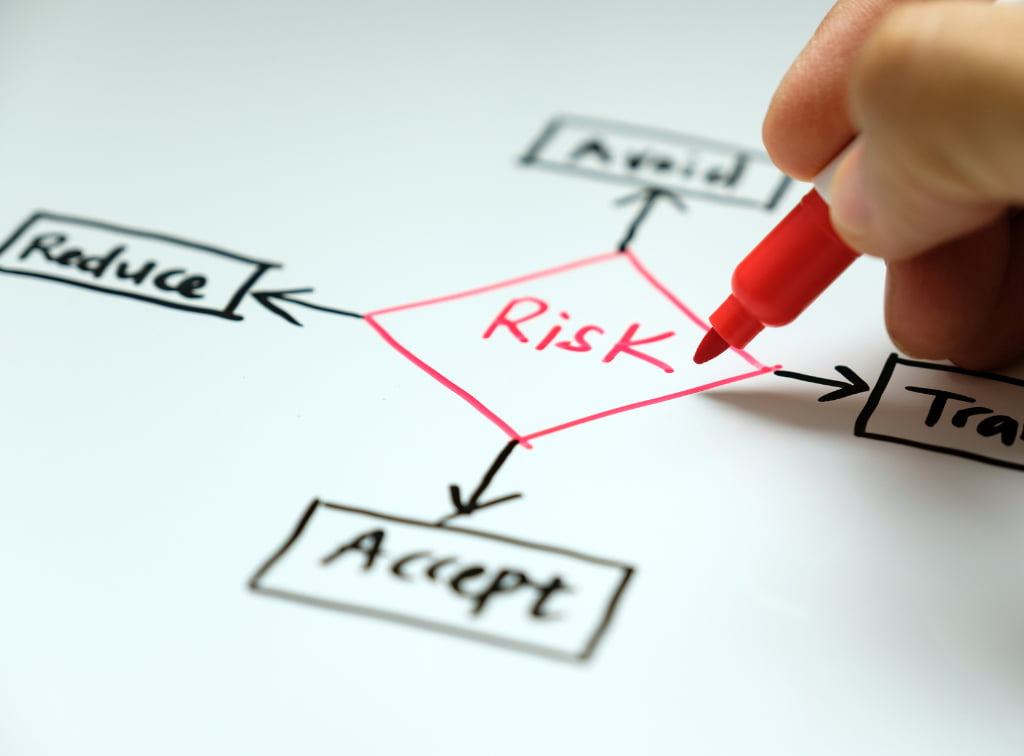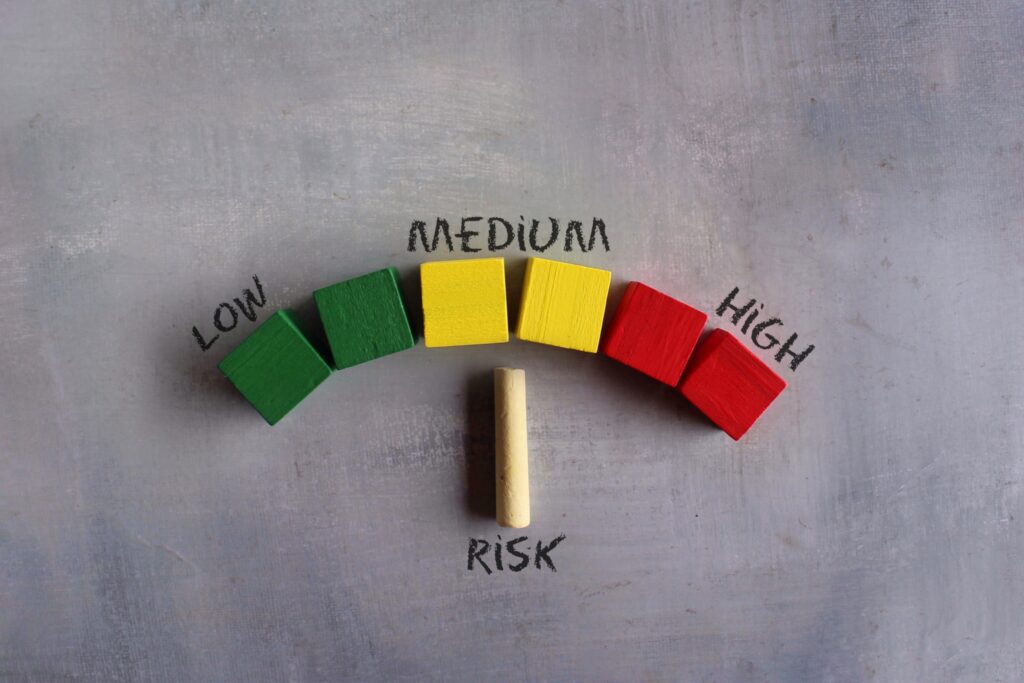
Risk is everywhere in life. From the mundane choices we make each day to the grand aspirations we hold, taking risks is an inextricable part of life itself. Although it may initially appear terrifying, taking risks is frequently necessary for a person to grow, achieve and be successful — whether it be in psychology, education, human nature or the development of society at large. It is one of the key activities that help in taking a boundary to a further limit for better potential. In this article we will try to explain the importance of taking risks as well as how to counter it.
Need for calculated risks

Human nature is, therefore, caution and risk aversion since we are driven by our survival instinct. According to evolutionary psychology, the human species has developed a mechanism for taking calculated risks towards possible great gains. It can be exemplified by people ready to venture into unfamiliar territories or to hunt larger prey.
The present world, however, is under the sway of psychological principles that revolve around taking risks: this means leaving one’s comfort zone in order to break an old pattern of habit, forcing oneself out of old mental ruts and learning new skills; risk taking is important for intellectual development and the hardiness that comes with it, according to psychological research. In addition to this, emotional benefits are possible as a result of taking risks, such as an increased sense of excitement and fulfillment when daring risks turn out well; risk avoidance, in turn, could lead to inertia or might give a feeling of missed opportunities and later on regret. Although renewed willingness to take risks may actually reinstate feelings of sadness and distress.
Abraham Maslow, through his hierarchy of needs theory, identified self-actualization as one of the highest needs of humanity whereby individuals strive to realize their full potential and lead lives keyed to meaningful goals. Getting to this stage usually comes with taking bold risks: to face fears and chase after meaningful goals. Without such risks, personal growth becomes impossible.
Education and Impact of risk-taking on growth

Education relies heavily on risk-taking for its success. From early childhood development through higher learning, students who take risks tend to outperform those who follow safe paths when it comes to learning. Risk taking often entails confronting challenging problems head-on, expressing unconventional views or exploring novel methods of instruction.
Teachers who create environments that encourage creative risk-taking–by encouraging students to ask questions, challenge assumptions or test new ideas–can foster creative risk taking among their pupils and hone confidence, critical thinking skills and problem-solving capabilities that have long-term benefits beyond academic performance. Such environments also prepare children for success in today’s rapidly changing globalized world, where innovation and adaptability are necessary components of success.
Stepping beyond comfort zones in education aligns with Carol Dweck’s theory of growth mindset, in which those with this belief believe their abilities can be developed through hard work and dedication, in contrast to a fixed mindset where abilities are thought to be fixed and unchangeable. Achieve this state requires taking risks, facing failure head on and learning from it all the time – something many educators do all too rarely.
Society and Necessity of bold decisions

Society has always been characterized by people willing to take risks — be it the driver of progress or the perpetuator of human culture. From scientific discoveries to political uprisings; whenever and wherever, people who take risks are likely to be the spark that ignites progress in our world. The fight for civil rights, ground-breaking medical research, starting a company — all of these often come down to a willingness to take risks. A willingness to take calculated risks is what delineates high performance from average performance.
Of course, society plays a role in the expanse of ‘Risk Appetite’ among its individuals. For instance – Cultures which significantly push forth individualism may also exhibit the same with Risk-taking; more risks would thus be taken in comparison to collective cultures that value conformity plus social harmony. For example, The West may often reward risk-takers with greater frequency in more fields of attainment compared to other older societies, which place more value on stability than risk-taking especially in their accommodations.
We reserve today, in our news and culture, a good deal of praise for entrepreneurs, artists, and athletes who took a chance and made it big. Be it Steve Jobs taking huge risks to reinvent technology or an athlete such as Michael Jordan surpassing multiple failures and adversity to attain a standard of excellence no one had done before, it all signs how risk-taking in life may eventually lead to great success. These stories tell people the importance of taking risks, inspiring them to pursue their dreams of having a stake involved.
Importance of Taking Risks in Creativity

Art and entertainment are risk-seeking, by nature. Boundary-chasing artists, filmmakers, musicians, norm challengers tread on untrodden paths ever seeking to create something unique and of significance. For most artists, risk comes in being vulnerable, laying out emotions, thoughts, ideas in front of the universe, unsure of the reception they will get.
Consider the case of the great artist Vincent van Gogh, who took immense creative risks by deviating from traditional painting styles to develop his unique expressionist technique. Noting how much of what he did was so very boldly out of reach of the appreciative techniques of his day, at present, the world over, his work is honored as a landmark that opened new horizons in the world of art. The same way around—filmmakers, musicians braking the conventional standards of creation usually risk time-aimed refusal just to have works stamped as transformational with prospective notes.
The entertainment industry requires and understands the importance of taking risks, too. For example, filmmakers who take risks by trying unconventional stories or film techniques typically churn out some great films that become genre-defining. Actors and performers also take risks by assuming complex characters, thus breaking boundaries in art and showing new sides of their talent.
Understanding Importance of Taking Risks: A Philosophical Perspective

From a philosophical perspective, risk is something basic to taking up the challenge in life. Existentialist philosophers like Jean-Paul Sartre and Søren Kierkegaard have argued that it is precisely the uncertainty and the bold choices that give meaning to life. For instance, Sartre’s notion of “bad faith” describes individuals living in such a way, fake and inauthentic, just to escape risk and responsibility by meeting societal expectations. This description echoes The Myth of Sisyphus. It was Albert Camus who argued that there can be no meaning to existence because life is absurd, and so man must revolt against it.
Kierkegaard, on the other hand, emphasized the leap of faith, in embracing uncertainty and being risky in the pursuance of meaning and purposes. For him, to lead an authentic life an individual has to face all anxieties and take decisions that reflect his true deepest values in them even if this involves enormous risks.
This philosophy connects with many things in the current world, be it relationships, careers, or personal dreams. It’s only when a person takes risks that they can confront their fears and question social taboos, walking along routes that take them to who they are, and find satisfaction.
Conclusion: Why Risk-Taking is Necessary for Growth
In psychology, education, society, or artistic creation, no matter where, risk-taking is an essential premise of development, innovation, and progress. It can be terrifying when the fear of failure comes from potential downside. However, very many risk-takers make often break through, break many norms, and eventually succeed in doing something great.
Risk enables a person to grow beyond what he or she is, find new talents and realize full potential: it is so with an individual, educational processes and development of society. Without risk, nothing would move, and chances for success, creativity and self-realization would always remain far-fetched. Thus, welcoming risk is far from just being useful: it is rather a way of leading a life of no meaning and impact at all.





